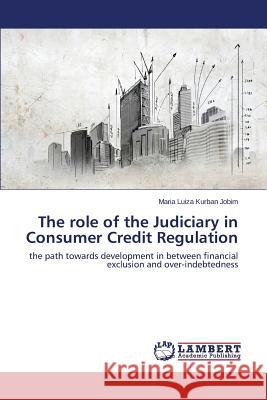The role of the Judiciary in Consumer Credit Regulation » książka
The role of the Judiciary in Consumer Credit Regulation
ISBN-13: 9783659582615 / Angielski / Miękka / 2014 / 112 str.
The expansion and the democratisation of credit all over the globe have been introduced together with sincere and enthusiastic hopes to improve individuals' incomes, smooth consumption and thereby reinforce or stimulate development. However, the overlapping role of credit in conciliating social and economic concerns has become problematic, especially when markets do not meet the desirable efficiency with its provision to the low income population and have to find the intricate path in between over-indebtedness and financial exclusion. Drawing on the tension between these two perspectives, this research analyses the potential harmfulness and the limits of consumer credit as a tool to promote development. Because the poor are the ones who, when recur to credit have few - if any - choices and whose behaviour is not entirely rational, dogmas of contractual law need urgently to be demystified, not only in the dogmatic, but specially in the pragmatic field as well. As sufficiency of consumer protection cannot be said to be found in the books, analysing judicial decisions arises as the best alternative to assess the satisfactoriness of protection in reality.
The expansion and the democratisation of credit all over the globe have been introduced together with sincere and enthusiastic hopes to improve individuals incomes, smooth consumption and thereby reinforce or stimulate development. However, the overlapping role of credit in conciliating social and economic concerns has become problematic, especially when markets do not meet the desirable efficiency with its provision to the low income population and have to find the intricate path in between over-indebtedness and financial exclusion. Drawing on the tension between these two perspectives, this research analyses the potential harmfulness and the limits of consumer credit as a tool to promote development. Because the poor are the ones who, when recur to credit have few - if any - choices and whose behaviour is not entirely rational, dogmas of contractual law need urgently to be demystified, not only in the dogmatic, but specially in the pragmatic field as well. As sufficiency of consumer protection cannot be said to be found in the books, analysing judicial decisions arises as the best alternative to assess the satisfactoriness of protection in reality.











